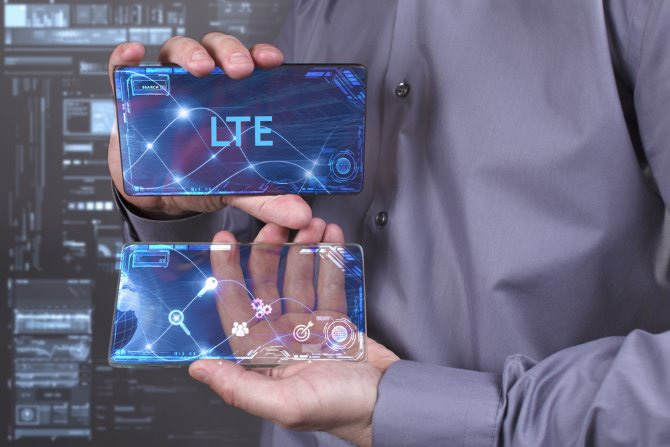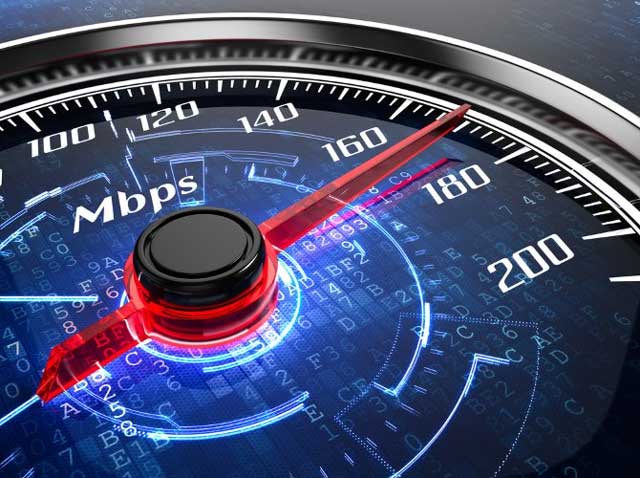Comparison of LTE, 4G and 5G networks
If you're a mobile user, you've probably heard about upcoming LTE, 4G and 5G. What are all these terms and how are they different? Let's explore in this article.
Distinguish between LTE, 4G and 5G
- What is LTE?
- History of LTE networks
- History of 4G LTE network
- What is 4G?
- What is 5G?
- Speed comparison: 4G LTE and 4G and 5G
- Comparison of 4G and 4G LTE speeds
- 5G speed compared to 4G LTE
- Comparison of 4G LTE, 4G and 5G speeds
- Should I upgrade to 4G?
- Should I upgrade to 5G?
What is LTE?
LTE is also called 4G LTE by network companies, but what does LTE stand for? It stands for Long Term Evolution and is the foundation for 4G connectivity.

History of LTE networks
Back in time when 4G entered the market, there was a suitable 4G speed determination standard. Therefore, companies not only create a slightly faster 3G service and try to turn it into 4G.
Therefore, ITU-R International Telecommunication Union has set some basic rules about 4G connection speed. The download speed must be 100Mb / s when moving and 1Gb / s when standing still to be considered legal for 4G speed.
The problem is that telecommunications companies cannot meet the requirements set by ITU-R at the time. As long as companies cannot provide true 4G speeds, they can't legally call their network 4G.
Instead, the growing 4G technology is named Long-Term Evolution to show that the technology is being developed. LTE is faster than 3G but does not reach the minimum speed like 4G.
History of 4G LTE network
But if this is true, what does 4G LTE mean? The reason why LTE has an additional '4G title' is because ITU-R lowered the 4G concept in advertising.
ITU-R noted the struggles of companies to achieve 4G speeds and how long this process took. Therefore, they claim that mobile networks can be recognized as 4G if the company can prove their speed is significantly higher than 3G. LTE has done this and becomes 4G LTE.
- Are 4G and 4G LTE networks the same?
Finally LTE can switch to near 4G speeds, using technology called LTE-A (or LTE +). A in LTE-A means Advanced and represents the next step in LTE technology. This 4G LTE-A technology is most used when the company claims it has 4G because some still don't really handle 4G speeds.
What is 4G?
G in 4G is Generation and 4G indicates that this technology is the 4th generation of mobile bandwidth technology. This is the next development from the previous technology called 3G.
4G connectivity meets the standards that we mentioned earlier, 100Mb / s when moving and 1Gb / s when standing still. If the speed doesn't reach that level, then it's called 4G LTE.
What is 5G?
As you can guess, 5G is the successor of 4G. At this point, 5G is still in the development phase, mobile companies set up the necessary infrastructure to support it. When it's ready, there's no reason to stick with 4G anymore.
When comparing 5G with 4G LTE, 5G beats both latency and download speeds. This increase is promising for the world of Internet of Things (IoT), especially for smart cars, because 5G can handle data better than 4G.
- What is the difference between 4G and 4G networks?
Speed comparison: 4G LTE and 4G and 5G

So, what is the speed of each network? To answer this question, we should not look at what companies say about their network speed, but instead, we will look at the research done by mobile analytics companies. OpenSignal.
Comparison of 4G and 4G LTE speeds
As mentioned above, a network that needs to provide 100Mb / s while on the move will be called 4G. OpenSignal's report, The State of Mobile Network Experience, aims to have an overview of 4G networks before the big 5G revolution takes place.
On page 5 of the report, there is a chart showing the average download speed of each country. Korea is the leading country in download speed of 50Mb / s, but it is still far from the speed of 100Mb / s.
Other countries like the US have an average download speed of 21.3 Mb / s, 35 other countries at 10-20 Mb / s, this is the most data.
5G speed compared to 4G LTE
OpenSignal also reports a maximum speed of 5G compared to 4G speeds. Note, this statistic is only the fastest speed of each network, it does not indicate the actual average speed of each network.
In a report called 5G boosts the maximum real-world download speed of up to 2.7 times 4G users' top speeds, OpenSignal sees the gap between 4G LTE and 5G depending on the country.
The US 5G maximum speed is 2.7 times its 4G LTE maximum speed, while Australia's 5G speed is actually slower than their 4G. Thus, when 5G appears worldwide, we can see extremely different speeds in each country.
However, these numbers do not accurately represent the average user experience. To get a reliable idea of 5G speed right now, we need to consider examples and experiment in the real world.
OpenSignal has done a study in Korea, where there is a strong presence of 5G. In the 111.8 Mbps average download speed 5G smartphone users experience, they found that users of 5G networks in Korea had an average speed of 111.8 Mbps faster than true 4G speeds.
This speed is an increase compared to 4G phone users with a speed of 75.8Mb / s. And also a significant jump from 4G phones generally has a speed of 47.7Mb / s.
With Korea's average reported speed in the first study of 50Mb / s, it can be said that this is the speed of most users with 4G phones in general. Thus, most Koreans can increase 134% in their speed by switching to 5G.
Comparison of 4G LTE, 4G and 5G speeds
Now that we know about the speed of each network, we can compare them to other networks to see the current mobile network status.
The maximum speed of 4G LTE network is about 100Mb / s, if faster than this speed is considered true 4G. The theoretical speed is what confirmed 4G LTE providers can expect from that network. As you can see, this speed is quite low compared to what has been promised and there is still a long way to get true 4G speed.
The definition of 4G is that the network provides 1Gb / s while the user stands still and 100Mb / s while on the move. Since 4G cannot achieve either of these conditions, we cannot say the real world speed of 4G.
However, the performance of 5G is quite good, although still new. The maximum speed of 5G is theoretically 20Gb / s. Companies claim that you can reach speeds of about 200Mb / s and 1Gb / s on their 5G network. However, you can only see these speeds on a city-specific system with little traffic.
In a country when 5G is more widely used than Korea, you will see a higher speed of about 100Mb / s. Although a bit slow for the 5G standards, we finally surpass the speed that 4G is trying to achieve, even on a busy network.
Should I upgrade to 4G?

If you are currently using a 3G phone, you can think about switching to 4G as this is soon a requirement because some major network providers are currently removing 3G to prepare to introduce 5G.
So, if you're still using 3G today, it's worth considering upgrading to 4G phones ahead of time.
And switching to 4G LTE also helps you get faster. If you want to compare 3G speed with 4G LTE, you can look at OpenSignal's table. From the table we can see that 3G has an actual download speed of 8Mb / s while 4G LTE + has a speed of 90Mb / s, 11 times faster. Therefore upgrading 3G phones will significantly increase your download speed.
However, you can't download the app or get a new SIM to turn your 3G device into 4G, but a 4G compatible phone is not very expensive.
Should I upgrade to 5G?
Although 5G phones are not standard in the market, there are plans to start selling when it is deployed. Should I upgrade my 4G phone to 5G?
At this point, it seems a bit early to switch to 5G. Not only is the phone supporting 5G more expensive, but the data packets may cost much more than the 4G package. Although the speed is 2 times higher than 4G, the cost is too high.
Therefore, upgrade to 5G if you do not regret money and excited to try this new technology. If not, you should wait for 5G to have a stronger foothold in the market and 5G phone, discount data package.
When it comes to 4G LTE, 4G and 5G networks, you will find that the advanced speed of 4G LTE is becoming really 4G that it is difficult to distinguish these two networks. Meanwhile, 5G is capable of doubling the speed of 4G LTE and opening up the future of Internet of Things, but they are still quite expensive.